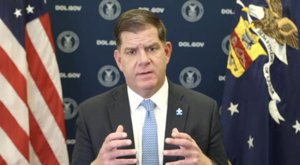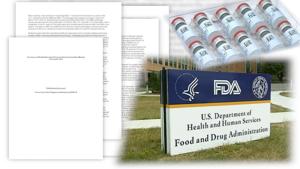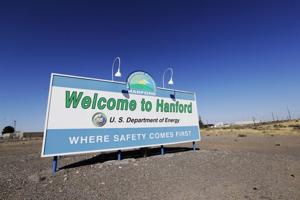
Washington D.C. feels like 1,000,000 miles away, but the decisions made there have ramifications on us right here. Labor Secretary Marty Walsh says the American Jobs plan is something every American in every part of the country, urban or rural will benefit from.
Secretary Walsh was mayor of Boston up until last month, now serving in the Biden administration as a cabinet secretary overseeing the Department of Labor, Walsh brings a background in construction and union work in addition to his political experience.
The piece of legislation that the secretary is supporting is a nearly $2 trillion package, and according to Walsh, it’s going to put the U.S. back to work. From roads to bridges all the way down to the internet, it could be viewed as a complete and total overhaul of our country’s infrastructure.
“When the president talked about this bill, the American Jobs Plan, it was described as an infrastructure bill,” Walsh said, “but I would probably say not the infrastructure we all assume, roads and bridges, even though there’s a very big part of this bill that includes roads and bridges, it’s really infrastructure for the American people.”
One of the many topics of conversation in this piece of legislation is modernizing public transit. Over the years many ideas have been floated locally about ways that the rail system can be improved. Both sides of the aisle seem to be in agreement that connections between Billings and Missoula as well as Missoula to Seattle could be improved.
This piece of legislation calls for $85 billion to modernize existing transit and help agencies expand their systems to meet rider demand. The secretary says the benefits of these improvements to the rail system locally can spiderweb into thousands of jobs regionally.
“People have asked what’s the job total that’s going to be created here in this plan, it’s in the millions right now but when you think of the ripple effects it could be in the tens of millions for certain regions,” Walsh said.
According to the secretary over the course of the pandemic 200 million women have been pushed out of the workforce.
“How do we get those women back in the workplace?” Walsh said, “it could be devastating to our economy if these women don’t return to our workforce.”
The secretary pointed out that for the first time due to COVID many people are out of work and the programs in the legislation would allow for people to take up apprenticeships and take training to re-enter the workforce.
“When you think of infrastructure in this particular manor,” Walsh said, “think of it as infrastructure investing in the middle class from roads and bridges to job training and everything in between.”
One of the infrastructure issues the secretary pointed to was clean drinking water, on the surface it doesn’t sound like a lot but once you dive into it it’s thousands of jobs.
“We have lead pipes in this country still that lead to about 400,000 builds,” Walsh said, “when you think of something like.. The water network, it provides construction jobs, tech jobs and long-term safety [jobs] afterwords.”
Across our region there are multiple hot button issues. One is the Keystone XL Pipeline which President Biden canceled with an
executive order, the other is the potential unionization workers at the Amazon Corporation.
“I have the upmost respect for the workers for exercising their right a hold a vote,” Walsh said, “I think that obviously different regions of this country the outcomes of that vote today would be different but.”
“Certainly President Biden has made it very clear that he feels, and I feel, as Secretary of Labor and as a private citizen everyone should have the right to join a union,” Walsh said, “if they choose to vote for a union we should respect that, if they choose not to vote for a union then we will respect that as well.”
The pipeline could have brought thousands of jobs into rural towns across Montana and Wyoming, with those jobs now gone the question becomes: what do those people do for work?
“I’m a laborer by trade, on a keystone pipeline… it’s about replacing jobs, I know a lot of people feel the green economy electric grids and things like that are not going to pay the same…as the pipelines,” Walsh said, “There is nothing that prevents us from being able to create a real strong economy to retrain those workers to work in the green sector.”
Outside of the hot topic issues the labor secretary says this bill is going to address things like lead pipes; removing them to the tune of $45 billion, $100 billion to invest in expansion of broadband so that people in rural communities will have easier access along with $25 billion to upgrade childcare facilities and access to daycare across the country.
“This makes sure rural communities would have broadband network,” Walsh said, “there’s a couple of things the average homeowner or the average resident of rural community is having troubles connecting to the Wi-Fi, and during the pandemic those areas, schools might have shut down… many particular poor families and communities of color… they didn’t have that connectivity.”
The secretary says this legislation is about connecting people to the 21st century.
“I know the American Jobs Plan is going to help us rebuild, that’s one of the largest if not the largest plans since the new deal,” Walsh said, “I wouldn’t characterize this bill as a wish list, I would characterize this bill as moving forward and building back better.”
The secretary says one of his biggest concerns right now is ensuring our safety and that we are healthy enough to return to work when the pandemic is over.
“Not everyone thinks they have to wear a mask, not everyone feels that the virus is real, the virus is very much real and still very much with us, I would ask people to wear a mask, wash your hands.. we have to beat this virus back,” Walsh said, “We are a year and a month, almost 2 months into this virus and it has really reeked havoc on a lot of families people who have lost their jobs and never been unemployed in their life and they have fear that their job won’t come back, so I think upon all of us that we make sure we continue to fight this virus.”



